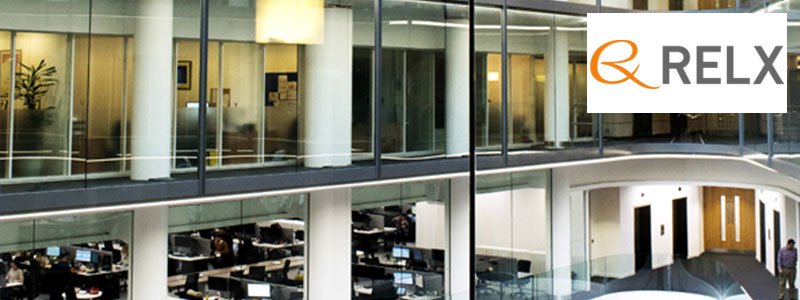Navigating uncertainty – investing in 2023
Archived article
Archived article: please remember tax and investment rules and circumstances can change over time. This article reflects our views at the time of publication.
At this time of year, there is no shortage of articles offering economic and stock market predictions.
I have never been a great fan. No one can predict the economy, let alone how the stock market will react. In any case, one-year performance is neither here nor there if you’re investing for decades.
That said, it hasn’t escaped my attention the world is rather uncertain. Instead of attempting to imitate Mystic Meg, I’ve tried to pull out some investing pointers that seem especially relevant in the current environment.
I hope they will stand you in good stead in 2023, and beyond.
Important: This article outlines Charlie’s personal investment views. It is not a personal recommendation to buy, sell or hold any of the investments mentioned. Experienced investors should form their own considered view or seek advice if unsure. Charlie personally holds shares in RELX, LVMH, and Diploma. This article is original Wealth Club content.
1) Don’t be put off by the doom and gloom
I’ve rarely known a year so full of gloomy headlines. But remember, the economy and the stock market aren’t the same thing.
2009 was dreadful for the economy, but very good for the stock market. 2022 was almost the opposite – the economy has held up quite well so far, despite rising interest rates and high inflation, but the stock market has made losses.
It’s why basing investment decisions on economic headlines is rarely a good idea. In fact, in my opinion, the key to successful long-term investing is to tune out as much of the economic noise as possible.
It’s easier said than done. But there are two aspects of my investment approach that help me.
Firstly, I favour companies that are less impacted by economic pressures in the first place.
 RELX, the academic journal publisher and data specialist, is a good example. Without access to RELX’s journals, scientists can’t do their jobs. The same goes for the data RELX supplies to insurers, governments and financial institutions to manage risks, combat fraud and comply with regulations. Whether the economy is hot or cold, it doesn’t matter much to RELX.
RELX, the academic journal publisher and data specialist, is a good example. Without access to RELX’s journals, scientists can’t do their jobs. The same goes for the data RELX supplies to insurers, governments and financial institutions to manage risks, combat fraud and comply with regulations. Whether the economy is hot or cold, it doesn’t matter much to RELX.
Secondly, when I invest in more cyclical businesses, I always try to ensure they will emerge from a downturn stronger.
Compass, the contract caterer, is an example.
The pandemic posed a huge challenge for the catering sector, because offices, universities and schools were closed. However, once the economy opened up again, there was a flight to quality, with the strongest players gaining at the expense of smaller competitors. As a result, Compass has seen a significant acceleration in new business wins and looks set to grow faster than before the pandemic.
2) The era of free money is over
The period of rock bottom interest rates and inflation that started with the 2008/09 financial crisis ended in 2022, and it seems unlikely we’ll go back there any time soon.
This has big implications.
Very cheap borrowing costs meant companies and investors were awash with spare cash, while poor returns on savings and bonds forced investors to look elsewhere. That created all sorts of excesses, with soaring prices for bitcoin, meme stocks and loss-making tech shares.
Going in to 2023, this has changed, meaning companies will have to work harder to attract investment. Indefinite losses and the prospect of making money ‘at some point in the distant future’ isn’t going to cut it.
I believe we’re entering a period where the strong get stronger. Loss-making companies will struggle to compete with highly cash-generative industry leaders, who should be well placed to extend their advantage.
3) Debt could be dangerous
Rising interest rates combined with a weakening economy mean debt is becoming more costly and more risky.
In this environment, investors should be willing to pay a premium for businesses with rock solid balance sheets. I believe net cash is the ideal position for companies to be in, but modest leverage is fine providing the debt is appropriately structured, with long-dated, staggered maturities and limited covenants.
It amazes me how frequently well-run companies leave themselves hostage to the whims of bankers in downturns. Often, this is because they are bumping up too close to their debt covenants or have lots of debt maturing in a short time window.
99% of the time it doesn’t matter. But the 1% of the time it does, it can ruin a business.
In the 2008/09 financial crisis debt markets froze, meaning many companies couldn’t refinance. This led to some savage share price declines. For example, Taylor Wimpey, the biggest UK housebuilder at that time, fell more than 90% in 2008. The group carried debts of £1.7 billion and investors feared it would go bankrupt.
Taylor Wimpey's share price performance in 2008
Companies with conservative balance sheets should be relatively well positioned if the economy takes a turn for the worse. They should be able to maintain investments and perhaps even snap up cheap acquisitions, enabling them to take market share from competitors.
Companies with weak balance sheets on the other hand will - at best - find their options limited and may be forced to raise money at an inopportune time, or even go bankrupt. They are best avoided, in my experience.
4) Pricing power even more critical in 2023
A robust economy and pent-up savings have made it easier for consumers and businesses to accept higher prices. That could easily change in 2023, providing a greater test of true pricing power.
The other issue is price increases compound over time. An initial 10% price rise might be palatable, but three such increases in relatively quick succession and you are suddenly faced with prices a third higher than before. It means each round of price rises becomes progressively harder, and is accompanied by customers taking a closer look at whether they can make cutbacks.
Companies that can continue raising prices without ostracising their customers deserve higher valuations, in my view. This is particularly the case if inflation remains elevated.
 I believe Moody’s, the credit rating agency, enjoys excellent pricing power. Companies raising debt benefit from substantial savings on their interest bill by having a Moody’s credit rating. It means they don’t bat an eye-lid when Moody’s raises the price, because not having a rating would leave them much worse off.
I believe Moody’s, the credit rating agency, enjoys excellent pricing power. Companies raising debt benefit from substantial savings on their interest bill by having a Moody’s credit rating. It means they don’t bat an eye-lid when Moody’s raises the price, because not having a rating would leave them much worse off.
Some luxury goods manufacturers also have great pricing power, in my opinion. There is tremendous status and prestige associated with a Louis Vuitton bag, for example, which is only enhanced by a high price tag. It’s one of the few industries where increasing prices can be appreciated by customers, rather than tolerated through gritted teeth.
As well as pricing power, I pay close attention to a company’s margins and cost structure. High margins and a scalable cost base afford greater protection against inflation.
Moody’s operating margins are close to 50%. If its costs go up by 10%, it only needs to grow revenues by 5% to maintain the same level of profit. In fact, Moody’s costs aren’t growing at that rate, because people are its main cost, and it doesn’t need to keep adding more employees to grow. This means the cost inflation it’s currently experiencing is well below the overall economy.
5) Expect the unexpected
If I’ve learned one thing as an investor, it is to expect the unexpected.
At the start of 2020, no one predicted a global pandemic. And you would have been hard-pushed 18 months ago, when the UK base rate was 0.1%, to foresee today’s double-digit inflation.
In an uncertain and unpredictable world, it’s vital your portfolio is diversified and can withstand external shocks.
My share portfolio will be more concentrated than an average fund. However, in my view, how many investments you hold doesn’t matter anywhere near as much as what you hold.
If you own 100 UK retailers, banks and housebuilders you are effectively exposed to a single theme – the UK consumer. A portfolio with a tenth the number of stocks, each exposed to different industries, will be more diverse.
For me, investing in 15-20 companies provides adequate diversification, as long as these businesses are exposed to distinct business drivers.
I tend to steer away from companies reliant on a single customer group or industry. And I’m especially wary of high customer concentration, where the loss of a single customer can blow large holes in the financial statements.
 Instead, I look for companies with exposure to a wide range of customers, industries and geographies. I also like businesses made up of lots of independent companies. That way, if something happens to one of the subsidiaries, it’s unlikely to do too much damage. Diploma, the diversified industrial business consisting of tens of individual operating companies, is a good example.
Instead, I look for companies with exposure to a wide range of customers, industries and geographies. I also like businesses made up of lots of independent companies. That way, if something happens to one of the subsidiaries, it’s unlikely to do too much damage. Diploma, the diversified industrial business consisting of tens of individual operating companies, is a good example.
Even so, if you’re thinking of investing in my portfolio, I’d suggest you use it to complement a wider pool of investments. It’s never a good idea to put all your eggs in one basket.
To sum up
No one knows how 2023 will pan out, but it pays to be prepared.
For me, that means building a diverse portfolio of highly resilient, industry-leading stalwarts, with:
- Highly cash generative business models
- Conservative balance sheets
- Multiple inflation defences
I expect these companies to be able to withstand whatever the economy throws at them in 2023, although they won’t be immune to stock market volatility. The baby often gets thrown out with the bathwater in a market downturn, meaning the shares of good companies get sold down, along with the bad.
But most truly exceptional businesses invariably emerge stronger. For a long-term investor like me, that’s what really counts.
See five-year performance of the shares mentioned above
Apply online now: Quality Shares Portfolio, managed by Charlie Huggins
The Quality Shares Portfolio, managed by Charlie Huggins and exclusively available through Wealth Club, is a portfolio specifically designed for people who are genuinely interested in investing.
It’s a portfolio of 15-20 global businesses chosen for their resilience, financial strength and pricing power.
It is profoundly different from any other investment you might hold in two key respects. The first is the level of information, insight and transparency it provides (you can see an example here). The second is in the investing approach itself.
You can invest in the Quality Shares Portfolio online, if you’re a high net worth or sophisticated investor. The minimum investment is £10,000; you can invest in an ISA, SIPP or in a General Investment Account, subscribing new money or transferring existing investments.
Liked this article? Register to receive the next one straight into your inbox.
See five-year performance of HL Select UK Growth Shares (Acc)
Wealth Club aims to make it easier for experienced investors to find information on – and apply for – investments. You should base your investment decision on the offer documents and ensure you have read and fully understand them before investing. The information on this webpage is a marketing communication. It is not advice or a personal or research recommendation to buy any of the investments mentioned, nor does it include any opinion as to the present or future value or price of these investments. It does not satisfy legal requirements promoting investment research independence and is thus not subject to prohibitions on dealing ahead of its dissemination.
